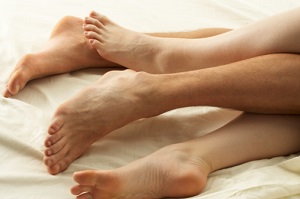Hypersexuality
 Hypersexuality is sexual behavior or a desire for sexual interaction that is significantly higher than average. For example, people with hypersexuality might masturbate a dozen times a day or feel the need to engage in sexual intercourse multiple times each day.
Hypersexuality is sexual behavior or a desire for sexual interaction that is significantly higher than average. For example, people with hypersexuality might masturbate a dozen times a day or feel the need to engage in sexual intercourse multiple times each day.
What is Hypersexuality?
Hypersexuality is a somewhat subjective label, as there is no established definition of normal sexual desire or frequency of sexual behavior. Cultural norms can establish what constitutes hypersexuality, and what one society views as normal might be viewed as excessive in another.
People are typically characterized as hypersexual when their desire for sexual interactions interferes with everyday life. For example, people who engage in risky sexual behavior, such as paying for sex, or consume pornography excessively to satiate sexual desires are sometimes characterized as hypersexual. When hypersexuality either interferes with normal functioning or is compulsive, it is called sex addiction.
Causes of Hypersexuality
Chemical imbalances can result in hypersexuality, and some people turn to sex in the same way others turn to drugs and alcohol. Experts are unsure of the precise cause, and explanations ranging from genetics to environmental modeling in media have been posited. For some people, sex relieves feelings of anxiety, worthlessness or depression. People with bipolar disorder may exhibit hypersexuality during manic periods, and some personality disorders, including borderline personality disorder, can cause hypersexuality.
Treatment for Hypersexuality
When hypersexuality is caused by another condition, such as bipolar, treating that condition may alleviate symptoms. Psychotherapy can be helpful, and people in intimate relationships may benefit from couples counseling designed to help them cope with their condition. Some people with hypersexuality attend 12-step programs such as Sexaholics Anonymous.
References:
- American Psychological Association. APA concise dictionary of psychology. Washington, DC: American Psychological Association, 2009. Print.
- Hypersexuality and bipolar disorder. (n.d.). Life Love and Bipolar. Retrieved from http://lifeloveandbipolar.com/hypersexuality-and-bipolar-disorder
- What is sexaholics anonymous? (n.d.). Sexaholics Anonymous. Retrieved from http://www.sa.org/index.php
Last Updated: 08-7-2015